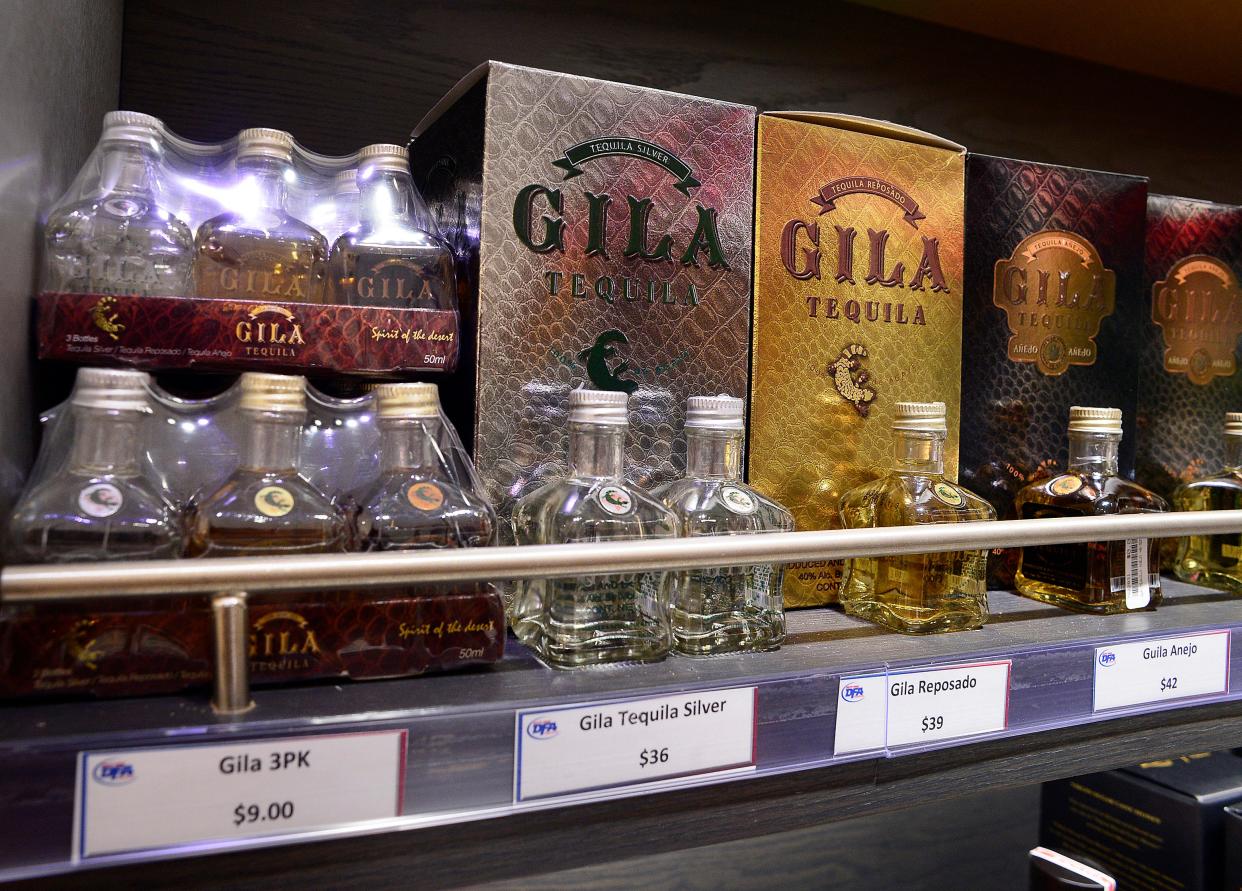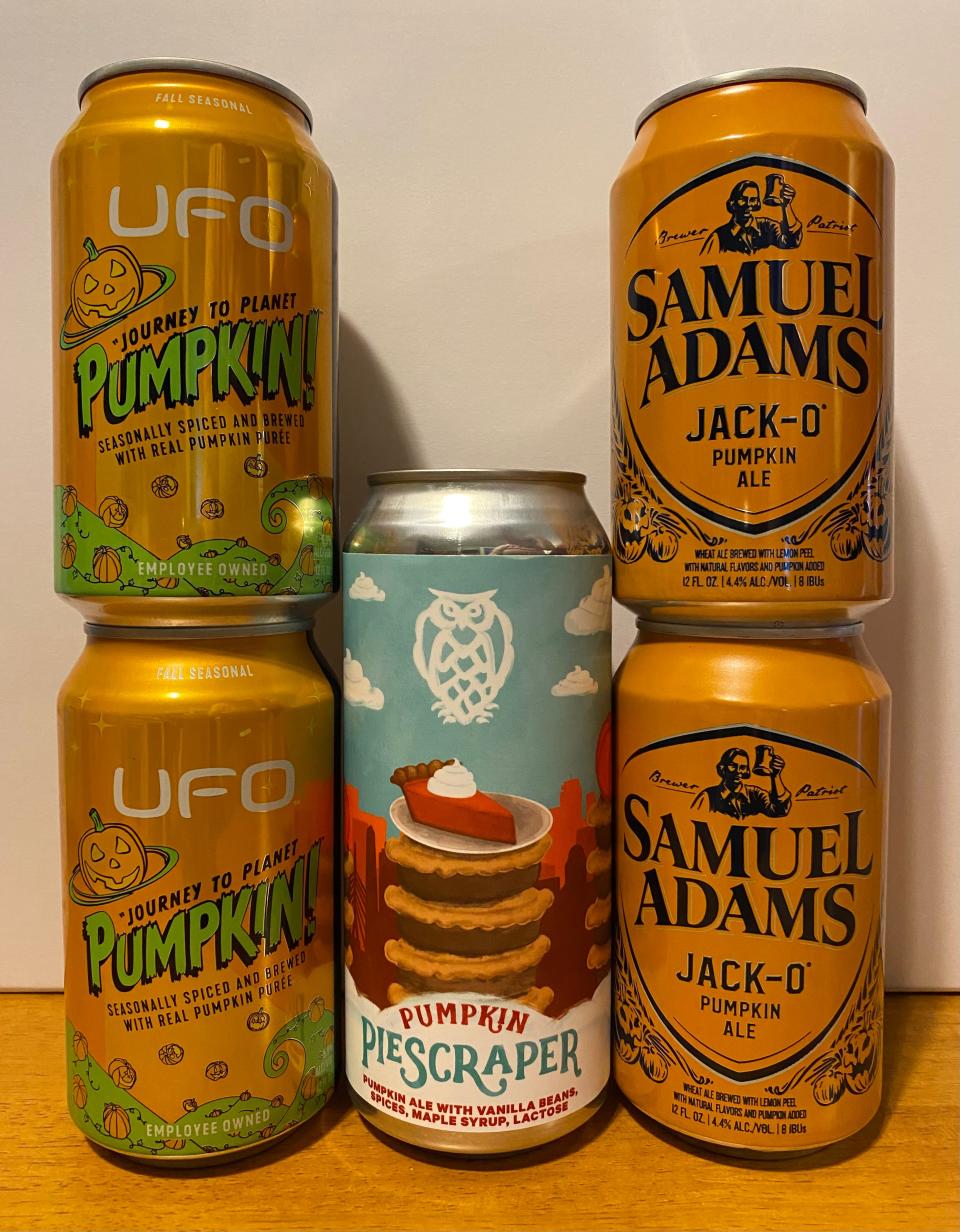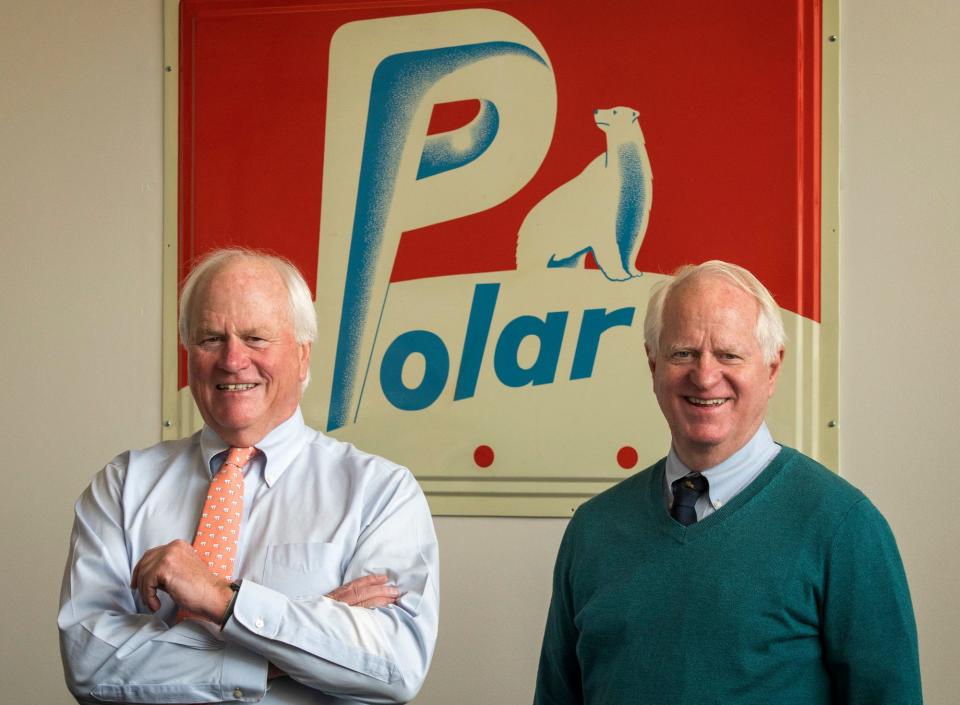A nickel more? Mass. legislators seek to revise decades old state bottle bill, reel in beverage container waste

- Oops!Something went wrong.Please try again later.
- Oops!Something went wrong.Please try again later.
BOSTON — Massachusetts residents could be leaving more than a few nickels a week in their recycling bins if lawmakers opt to enact any of the proposed measures seeking to revise the state’s bottle bill by increasing the deposit price and extending it to most beverage containers, including water and wine.
Legislators have filed at least three bills seeking to revise the state’s beverage container laws since the start of the new legislative session.
Rep. Marjorie Decker, D-Cambridge, Sen. Cynthia Creem, D-Newton, and Rep. Michelle Ciccolo, D-Lexington, have filed bills seeking to expand the types of containers subject to a deposit.
"Plastic pollution is as much a danger to public health as it is to the environment. The bottle bill is one of the most effective tools we have to encourage recycling, and I look forward to working with my colleagues and advocates to update it this session," said Decker.
The bills would increase the container deposit from a nickel to a dime, as well as expand the types of containers subject to a deposit. Included in their bills, and a second bill filed by Ciccolo, would revive an environmental fund that allocates abandoned container deposits to programs that promote recycling and trash reduction.
Legislators: Time to revisit bottle bill 40 years after first enacted
“The new and improved version of the Better Bottle Bill will ensure that our bottle deposit program is as effective as possible in reducing waste, litter and greenhouse gas emissions,” said Creem, the Senate majority leader. “A strong grassroots coalition built incredible momentum for the bill during the last legislative session, and I’m excited to work with Representative Decker, MASSPIRG and citizens from across the commonwealth to pass it into law during the new session.”
House legislators Joseph McKenna, R-Webster, Rep. Jack Patrick Lewis, D-Framingham, Nicholas Boldyga, R-Southwick, and Josh Cutler, D-Duxbury, are also looking to address the pollution problem relating to the miniature liquor bottles, nips, and have filed four bills pertaining to their proper disposal.
On the Senate side, Sen. Sal DiDomenico, D-Everett, filed a bill that addresses recycling nips.
Janet Domenitz, executive director of the Massachusetts Public Interest Research Group (MASSPIRG) said revisiting the bottle bill that came into effect in 1983, is vital to keeping the state litter-free and addressing the proliferation of plastic beverage containers.
“Every year, more types of single-use beverage containers come on to the market and every year there’s more litter and waste. We need to expand our ‘bottle bill’ law to address our waste crisis,” Domenitz said. "We are ready, mobilized and excited to push this campaign to expand the Massachusetts’ bottle bill over the finish line."
Domenitz said her group welcomes the proliferation of the bills as the interest could indicate that a measure is more likely to pass.
“In the last 20 years, new drinks have become popular,” Domenitz said, referring to bottled water, juices and nectars, teas and sports drinks.
She added it was past time that the state increase the deposit from five cents to ten as an incentive to redeem containers. Plastic milk bottles, milk substitute containers and medicine containers would continue to be exempt from the deposit.
Past ballot question reflected resistance to expand bottle bill
Currently, Massachusetts exacts a 5-cent container deposit on carbonated beverages, and beer and malt-brew products. Containers with fruit juices, noncarbonated beverages (water, juice, iced teas, nectars and sports drinks) are not subject to a deposit. All retailers selling the carbonated items are required by law to accept empty containers that once held the products they sell.
A ballot question launched in the 2015 that would have expanded the container deposit to include noncarbonated beverages, was defeated by residents with 73% — nearly 1.6 million voters — checking the "no" box on their ballots.

That measure would also have exempted smaller retailers, those with less than 3,000 square feet of retail space, from having to accept the returns. It would also have addressed the handling fee paid to retailers, ensuring it was reviewed for cost increases every five years.
Robert Mellion, executive director of the Massachusetts Package Stores Association (MASSPack) said his group supports the measure extending the deposit to different types of containers. However, he feels the handling fee, currently 2.25 cents per container, is too low.
“We have been consistent over the last six years, testifying that we support the expansion of the bottle bill. All we ask is an increase in the handling fee,” Mellion said. “The fee hasn’t increased since the measure was enacted in 1983.”
The cost of handling empty containers and processing the collection and return of the nickel deposits, has “skyrocketed,” said Mellion. He noted that redemption centers, retail establishments that accept empty beverage containers and pay the 5-cent deposit for each, are paid slightly more than package stores for facilitating the transaction.
Massachusetts consumers abandon millions of dollars every month in their recycling buckets.
According to tables compiled by the state Department of Revenue, abandoned nickels added $71 million to state coffers in fiscal 2021; and another $71 million in fiscal 2022. Last month, the state gained $8.1 million in unclaimed nickel refunds.
Those nickels, or dimes, would be redirected from the general coffers to a special fund that would promote the state’s efforts to reuse, reduce and recycle.
Voters opt to recycle, rather than redeem
Christopher Crowley, executive vice president and treasurer of Polar Beverage in Worcester, said Massachusetts voters have already weighed in on the question in 2015. In addition, he said, they are memorializing that vote by their behavior using curbside recycling for all their containers.
“It’s a fairly efficient system,” Crowley said of the different recycling programs many municipalities have adopted.

Crowley maintains that an expanded bottle bill would compete with those recycling programs and that it would remove from the recycling stream many of the materials that bring the most profit to recyclers: Plastic water bottles and aluminum cans.
Crowley said he believes a better solution would be to bolster recycling education programs in Massachusetts to teach consumers what and how to recycle.
To capture all the recyclable material, plastic caps should be left on beverage bottles, containers should be clean and empty with no food residue.
Manufacturers can complicate recycling efforts when they use plastic shrink-sleeve labels on containers, labels that can gum up or jam machinery, or when they package items using black containers. Recycling machines do not “see” black containers
Crowley warned of unintended consequences.
“But the state loves the low redemption rate; it gets all the funds from unredeemed deposits,” Crowley said.
This article originally appeared on Telegram & Gazette: Effort to expand bottle bill could add more containers, higher deposit

